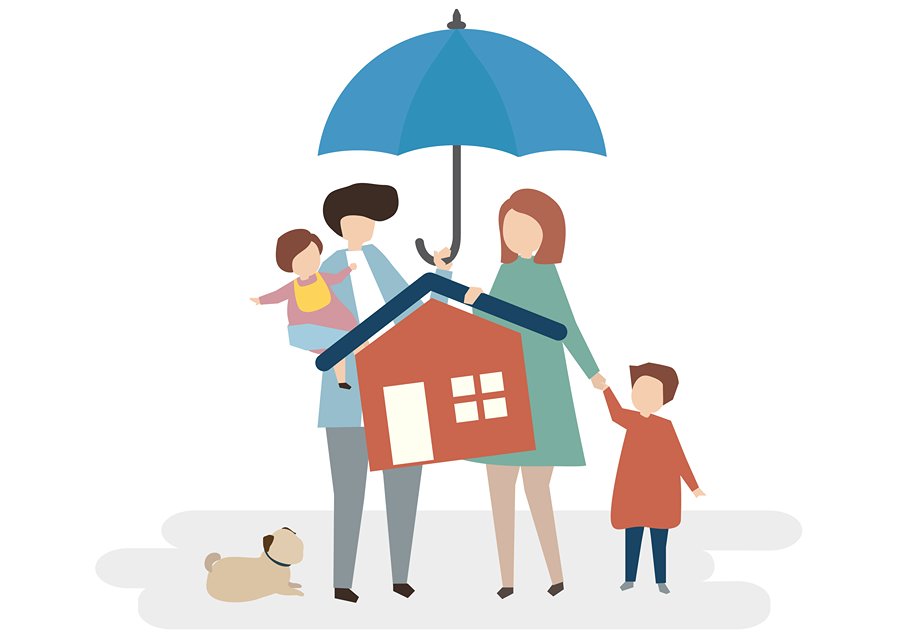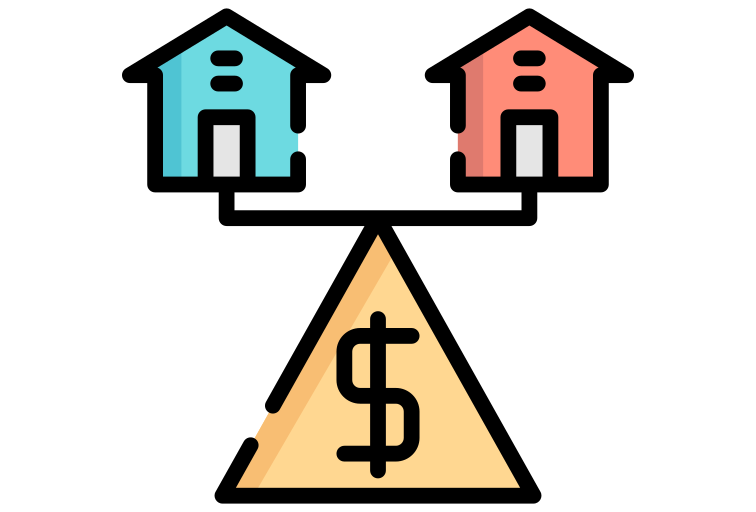The Pros and Cons of Fixed Rate vs Variable Rate Mortgages
When it comes to choosing a mortgage, one of the biggest decisions you’ll face is whether to opt for a fixed rate vs variable rate mortgage. Each option has its own advantages and disadvantages, and the right choice for you will depend on your individual circumstances and preferences.
In this blog post, we’ll explore the pros and cons of fixed rate vs variable rate mortgages to help you make an informed decision.
Fixed Rate Mortgages

A fixed rate mortgage is a type of mortgage where the interest rate remains the same throughout the term of the mortgage.
This means that your monthly payments will also remain the same, making it easier to budget and plan for the future.
Pros:
Certainty
With a fixed rate mortgage, you’ll have certainty and predictability in your monthly payments, which can be helpful for budgeting and planning for the future.
You’ll know exactly what your mortgage payments will be for the entire term of the loan, providing peace of mind and financial stability.
Protection from rising interest rates
If interest rates rise, your mortgage payment will remain the same. This can provide protection against unexpected changes in the market and help you avoid financial hardship or defaulting on your mortgage.
Peace of mind
Knowing that your mortgage payment won’t increase can provide peace of mind and security.
This allows you to plan for other financial goals, such as saving for retirement or paying off other debts, without worrying about the impact of rising interest rates on your mortgage payment.
Cons:

Higher initial interest rate
Fixed rate mortgages often have a higher initial interest rate compared to variable rate mortgages.
This means that you may end up paying more in interest over the life of the loan, although the higher interest rate can be worth it for the stability and peace of mind that a fixed rate mortgage provides.
No benefit from falling interest rates
If interest rates fall, your mortgage payment will remain the same. You won’t benefit from the lower rates unless you refinance your mortgage, which can involve additional costs and fees.
Refinancing can also be a time-consuming process and may require you to meet certain eligibility criteria, such as a minimum credit score or income level.
Less flexibility
Fixed rate mortgages offer less flexibility than variable rate mortgages.
You may not be able to make extra payments or pay off the mortgage early without penalty, which can limit your ability to save money on interest or pay off your mortgage faster.
Variable Rate Mortgages

A variable rate mortgage is a type of mortgage where the interest rate can fluctuate over time. This means that your monthly payment can go up or down, depending on changes in the market.
Pros:
Lower initial interest rate
Variable rate mortgages often have a lower initial interest rate compared to fixed rate mortgages, which can result in lower monthly payments and more money in your pocket.
Potential savings
If interest rates fall, your monthly payment will decrease, which can result in significant savings over time. This can help you pay off your mortgage faster and save money on interest.
Flexibility
Variable rate mortgages often offer more flexibility, such as the ability to make extra payments or to pay off the mortgage early without penalty. This can help you save money on interest and pay off your mortgage faster.
Cons:
Uncertainty
With a variable rate mortgage, there is no certainty or predictability in your monthly payment. This can make budgeting and planning more challenging, and can cause stress and uncertainty for some homeowners.
Risk of rising interest rates
If interest rates rise, your monthly payment will increase, which can put a strain on your budget. This can make it more difficult to plan for the future and can impact your ability to save and invest in other areas.
Which is Right for You?
When deciding between a fixed rate or variable rate mortgage, it’s important to consider your individual circumstances and preferences.
Some factors to consider include:
Your risk tolerance: Your preference for risk and uncertainty should be taken into account when choosing between a fixed rate vs variable rate mortgage.
If you’re someone who values stability and predictability, a fixed rate mortgage can give you peace of mind. But if you’re comfortable with taking some risk and want to potentially save money, a variable rate mortgage might be a good option.
Your budget: You should take a careful look at your current budget and future financial goals before choosing a mortgage. A fixed rate mortgage can provide more certainty in your monthly payments, which can be beneficial if you’re on a tight budget.
But if you have more flexibility in your budget and can handle some fluctuation in payments, a variable rate mortgage might be a better choice.
The state of the economy: The current state of the economy and interest rates should also be taken into account when choosing a mortgage. If interest rates are currently low and expected to stay low, a variable rate mortgage may offer better long-term savings potential.
On the other hand, if interest rates are high or expected to rise, a fixed rate mortgage might be a safer option for your finances. It’s important to do your research and consider all of these factors before making a final decision.
Final Thoughts
Choosing between a fixed rate vs variable rate mortgage is a significant decision that can have a major impact on your finances. Both options have their own pros and cons, and the right choice for you will depend on your individual circumstances and preferences.
By carefully considering your options and seeking guidance from a mortgage adviser, you can make an informed decision and select the mortgage that’s right for you.
Aspire Financial Advisers is dedicated to helping our clients make informed decisions about their mortgage options.
Contact us today to speak with one of our experienced advisers and to learn more about how we can help you choose the right mortgage for your needs.
Remember, a mortgage is a significant financial commitment, and taking the time to choose the right option can help ensure that you’re making the most of your investment.
| Approver Quilter Financial Services Limited & Quilter Mortgage Planning Limited. 26th May 2023 |

